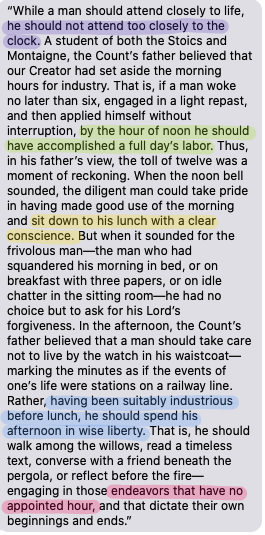Mirrors and clocks transformed society, but they’re so old that...
Length: • 1 min
Annotated by John Philpin
Mirrors and clocks transformed society, but they’re so old that nobody questions them.
Clocks created a culture of anxiety.
Mirrors created a culture of narcissism.
“In this world, there are two times. There is mechanical time and there is body time.”
— Alan Lightman
It‘d be fun to switch between these time speeds throughout the year. No clocks for a weekend and your body will find a new language of calm and patience.
(h/t @BrentBeshore)
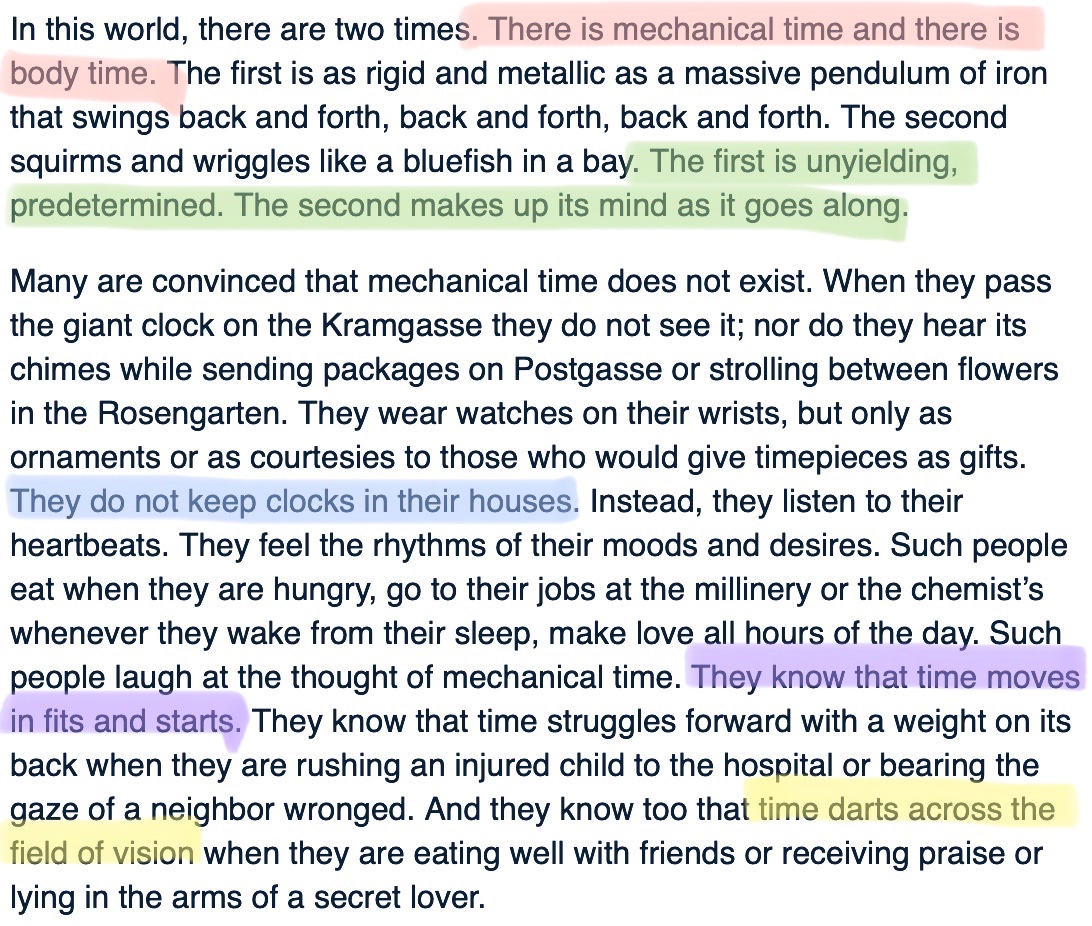
The mechanical clock was invented in the 12th century to rally the monastery to prayer.
But the West’s relationship with time transformed in the 14th century, when the first public clock tower was built and challenged our rhythms of work and rest.
What a marvelous passage.
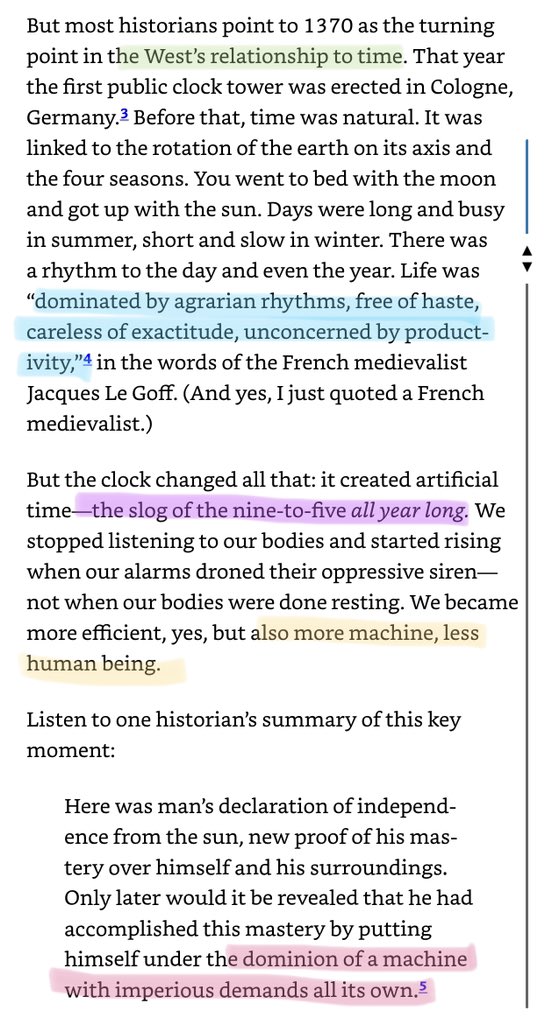
Before the clock, we lived on naturalistic cycles.
Night followed day, day followed night; and each year had a succession of seasons. Spring was for planting and summer was for harvest. But then, the clock arrived.
This old Roman poem speaks to the tyranny of the clock.

My favorite philosopher of the clock is Lewis Mumford.
• The clock is the key machine of the Industrial Age.
• The clock cuts time into discrete pieces, as clock towers become the soundtrack to human life.
• Clocks synchronize the masses, but removes them from organic life.
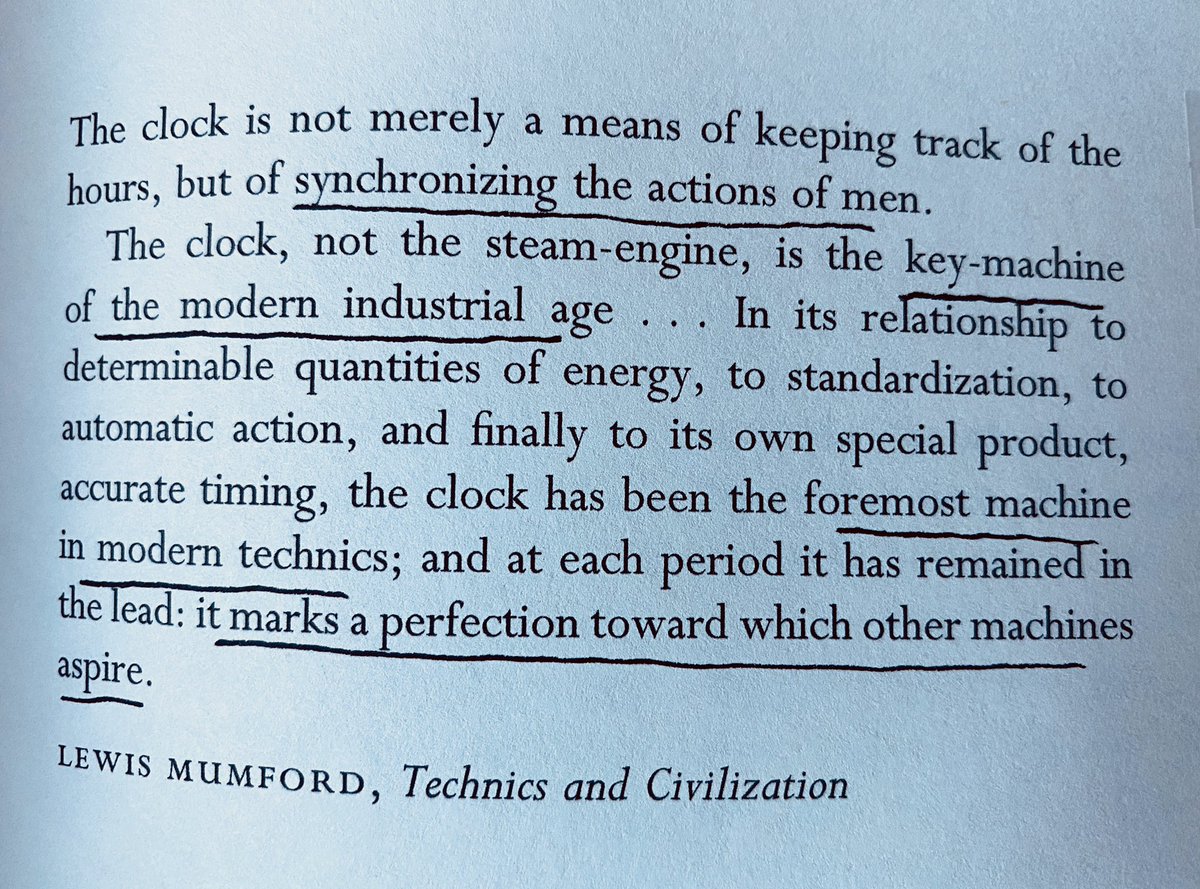
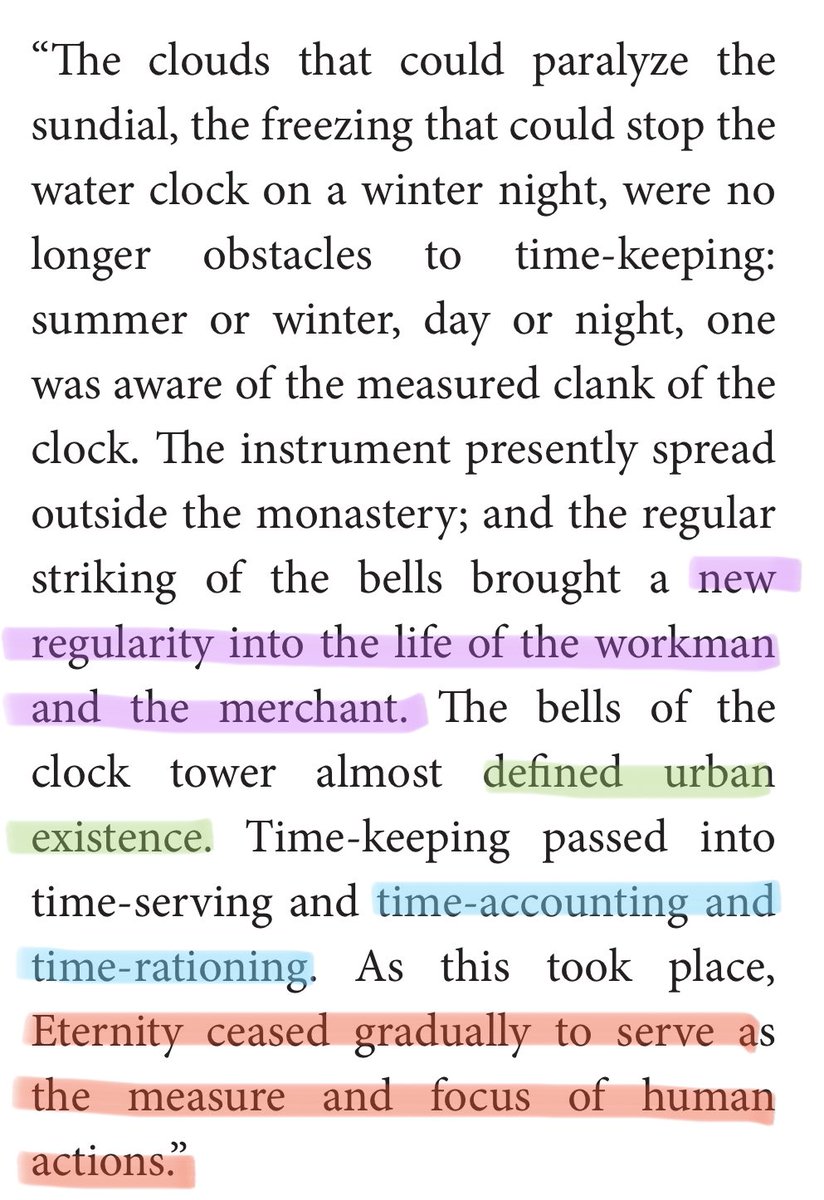
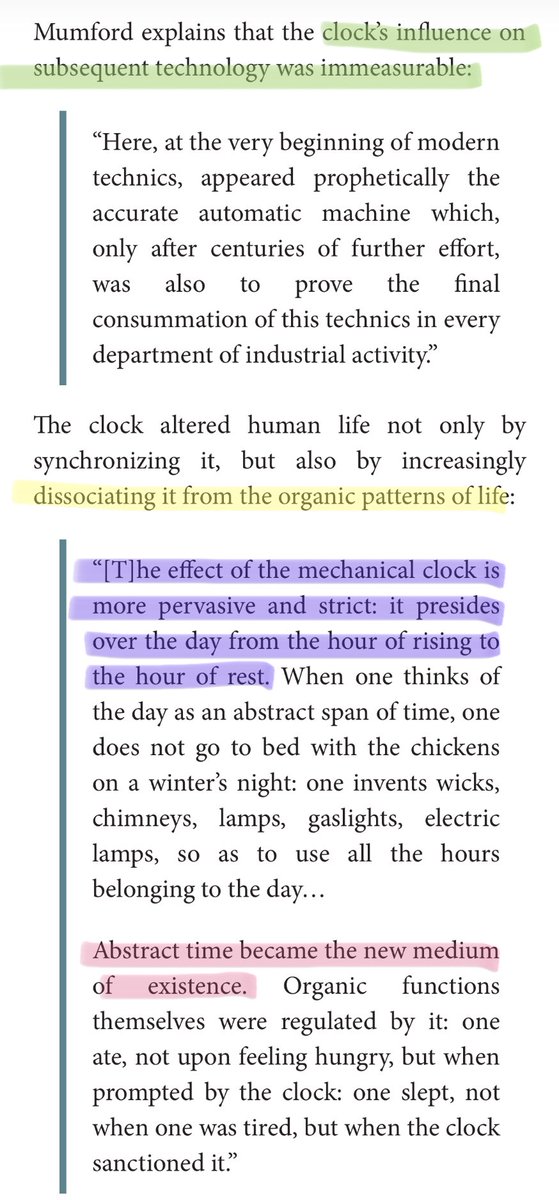
What if clocks only rang twice per day?
The first time, it'd tell you to wake up and get to work. Then, it rings the second time, you stop working and enjoy yourself for the rest of the day, knowing that your work is complete.
h/t @tommycollison
Source: “A Gentleman in Moscow.”
